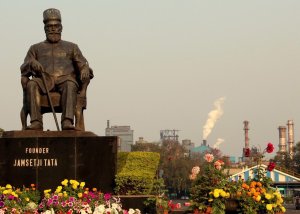Presented By: Center for South Asian Studies
CSAS Lecture Series | Tata: The Global Corporation That Built Indian Capitalism
Mircea Raianu, Department of History, University of Maryland

From one of many merchant families in the colonial port city of Bombay, making their fortunes in the cotton and opium trades, the Tata business group ascended to the commanding heights of the Indian national economy by the time of independence in 1947 - and has remained at or near the top ever since. Tata companies spun textiles, forged steel, generated hydroelectric power, and took to the skies by pioneering air travel. In parallel, Tata-funded philanthropic institutions channelled transnational technology and knowledge flows in the realms of engineering, social science, medicine, and atomic research. What explains this extraordinary resilience and diversification? What contestations and contradictions does it mask? Mircea Raianu's book argues that private corporations like Tata played a crucial role in the development of Indian capitalism by assuming quasi-sovereign functions – at times acting like a state, at other times in direct opposition to state aims. Tata was both a “surrogate state” and a “state within a state” wielding power over domains of its own: company towns, model villages, scientific laboratories, and universities. This talk explores the evolution of this fraught state-capital relationship in times of transition and crisis.
Made possible with the generous support of the Title VI grant from the U.S. Department of Education.
Made possible with the generous support of the Title VI grant from the U.S. Department of Education.